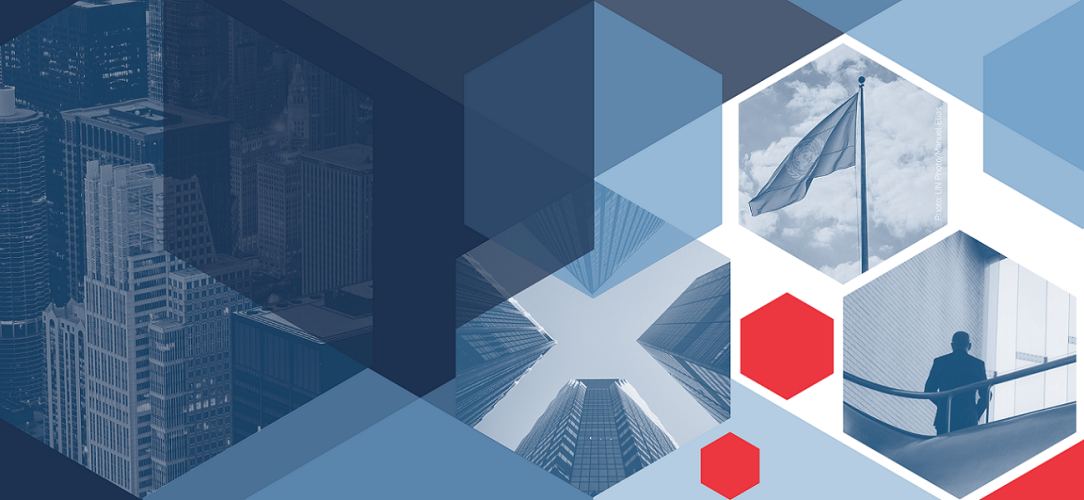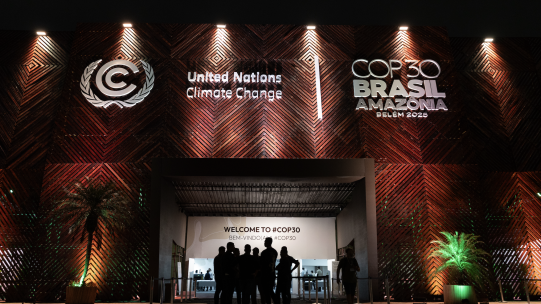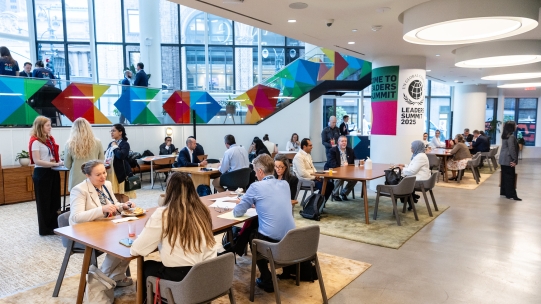Turkish companies address sexist, discriminatory and non-inclusive language by crossing it out
Read more

Words matter in gender equality. Language plays a powerful role in promoting inclusivity, fairness, rights and opportunities for women. The United Nations encourages the use of gender-inclusive language, which means speaking and writing in ways that do not discriminate against any particular sex, social gender or gender identity nor perpetuate gender stereotypes.
Now companies in Türkiye, with the help of the UN Global Compact, are taking aim and getting rid of sexist, discriminatory and non-inclusive language, such as with the use of the “Crossing Out” project. Under this innovative programme, in company communications and documents, they are working to delete negative, stereotypical words and phrases and replace them with inclusive language.
These efforts reflect ways to address the significant gender gap in Türkiye’s workforce. Women comprise almost half the country’s population, but their labour force participation is only about 35 per cent, according to 2019 Turkish Statistical Institute data cited by the International Labour Organization.
That’s roughly half the labour force participation rate of men, the data shows.
At the Global Compact Network Türkiye, gender equality is a top priority. In fact, due to the work of the Network, the country has the second-highest number of signatories to the Women’s Empowerment Principles worldwide.
Network Türkiye launched a Gender Equality Working Group and a Diversity & Inclusion Working Group, as well as implemented a Target Gender Equality (TGE) accelerator that started in 2020. To date, 55 companies have completed the programme.
Participant company Anadolu Sigorta took on the issue of sexist and discriminatory language using the theme “change begins in language” to raise awareness and ensure that the company’s internal language encourages and supports gender equality.
The insurance company implemented an auto-correction tool that finds and fixes problematic words or phrases in company correspondence and presentations. For example, “man/hour” is changed to “person/hour.”
Apparel company Penti, also a participant of the UN Global Compact, launched its “Equality in Language” project in 2020.
“We realized that firstly, we have to change our way of thinking and everyday language,” said Selim Arda Üçer, the company’s Chief Human Resources Officer.
Penti began by taking a hard look at its interviewing and recruitment processes, seeking to “make the candidates feel that they are only evaluated according to their professional characteristics and not by their gender, appearance, way of living, marital status, etc.,” Üçer said.
“We weren’t asking the right questions to the candidates,” he said.
Penti rewrote its job advertisements using neutral language, prepared an interview guide for candidates and training on “what to ask and not to ask” for its executives.
During this process, the company participated in the TGE accelerator of the Global Compact. The company said its participation in TGE allowed it to share its experiences and get feedback and advice from other companies to improve and strengthen its efforts.
In particular, participating in the “Crossing Out Project” raised awareness about discrimination in daily language as well, the company said.
It looked at words and business terms commonly used, often by people who don’t realize the gendered connotations.
A project team assembled a dictionary E-kitap (penti.com.tr) for its more than 4,000 employees, identifying sexist, discriminatory and maligning words and offering alternatives. Humanity replaced mankind, and attorney replaced woman attorney. It replaced erkek gibi kadin, which means manly woman, with cesur kadın, which means brave woman.
The company’s design department ran with the idea and launched a line of socks based on its “Crossing Out” efforts to replace non-inclusive and discriminatory words and phrases with inclusive language.
By taking the “Crossing Out” project to consumers, Penti became a commendable and useful illustration of how companies can contribute to advancing gender equality not just within their own workplaces but also in the wider community and marketplace.
Advancing gender-inclusive language in hiring processes, marketing efforts and awareness campaigns are powerful and effective ways to break gender stereotypes on all fronts. Such efforts not only benefit the company but also contribute to a more inclusive and diverse society. The initiative is a powerful reminder that corporate responsibility goes beyond the bottom line and encompasses a broader social purpose.

